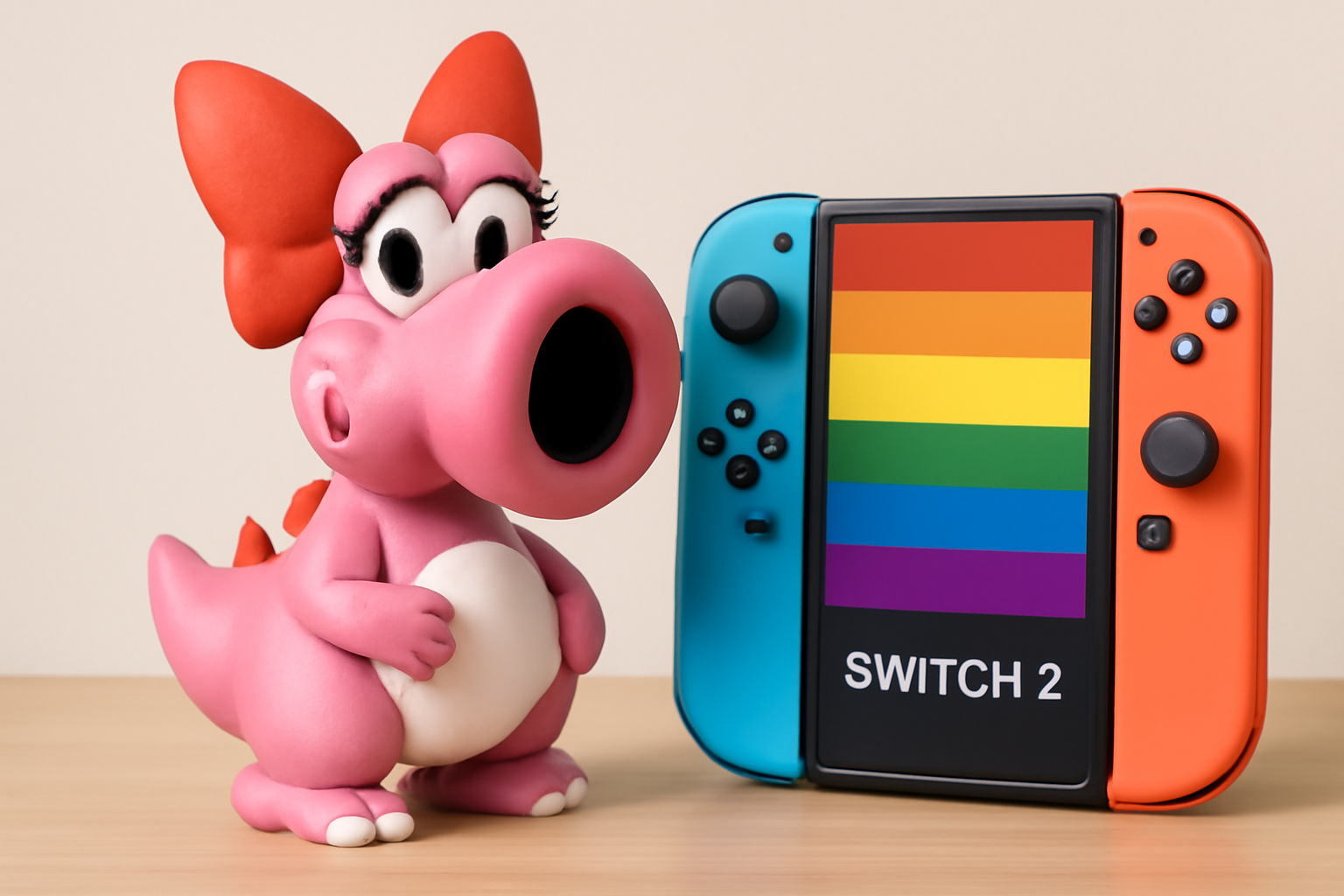
Nintendo has long been a staple in the gaming industry, renowned for its beloved characters and innovative consoles. As the company unveils the highly anticipated Switch 2, it’s an opportune moment to explore Nintendo’s journey with LGBTQ+ representation. From official characters to fan interpretations, Nintendo's relationship with the LGBTQ+ community is both complex and fascinating.
The Switch 2: A New Era for Nintendo
Recently, Nintendo announced the Switch 2, an updated version of its wildly successful Nintendo Switch. Slated for release in 2025, this new console boasts a larger display, cutting-edge "joyCon" controllers, and an array of enhanced features. As excitement builds around this new gaming era, it's worth reflecting on Nintendo's past interactions with the LGBTQ+ community.
Vivian: A Trans Icon in Paper Mario
One of the standout releases for the original Switch was the remake of Paper Mario: The Thousand-Year Door. This version reintroduced Vivian, a character whose dialogue affirms her transgender identity. In a touching moment, she reveals to Mario, "Truth is, it took me a while to realise I was their sister… not their brother. Now their usual bullying feels heavier." Vivian’s story is a poignant example of how representation can resonate with and validate LGBTQ+ gamers.
A Look Back at Nintendo's First Queer Character
The journey of LGBTQ+ representation at Nintendo began with Birdo, introduced in 1988’s Super Mario Bros 2 for the NES. Birdo's character initially sparked controversy, with the North American manual stating: "He thinks he is a girl and he spits eggs from his mouth. He’d rather be called ‘Birdetta’." Despite the dated language, Birdo is considered one of gaming's first transgender characters, and she continues to be embraced as such, appearing in games like Mario Kart 8 and Mario Golf: Toadstool Tour.
Birdo’s inclusion set a precedent for more diverse characters in Nintendo’s lineup, spanning series like Metroid, Animal Crossing, and Pokémon. However, the path has not always been smooth, as occasional transphobic humor has been noted in past game instructions. Despite this, Birdo's legacy endures, symbolizing a step forward in a historically conservative industry.
Nintendo's Place in Japan’s Changing LGBTQ+ Landscape
Nintendo’s early queer characters emerged in a Japan where LGBTQ+ rights were minimal. During the 1980s, when Birdo was created, LGBTQ+ identities were heavily stigmatized. Today, while Japan still grapples with issues like same-sex marriage, companies like Nintendo are making strides toward inclusivity. For instance, Nintendo introduced policies granting same-sex couples the same benefits as their heterosexual counterparts, showcasing a commitment to progress.
This evolving openness is reflected in games such as Animal Crossing, which have become sanctuaries for LGBTQ+ players, particularly during challenging times like the COVID-19 pandemic. While Nintendo doesn’t tailor its games to specific demographics, its welcoming approach allows players of all identities to find a home in its fantastical worlds.
Fan Interpretations and Community Impact
The flexibility of Nintendo's characters has inspired a wealth of fan interpretations, enriching the community’s connection to them. Luigi, for instance, has been affectionately dubbed "Trans Luigi" by fans, following theories sparked by the New Super Mario Bros Deluxe’s Super Crown power-up. This item, while only usable by Toadette, inspired the creation of characters like Bowsette and fueled speculation about Luigi's gender identity.
Similarly, the Nintendo fandom has embraced Donkey Kong as a trans ally, largely thanks to the efforts of YouTuber Harry Brewis, aka Hbomberguy. Through a marathon stream of Donkey Kong 64, Brewis raised $347,000 for the UK trans charity Mermaids, gaining support from prominent figures like Alexandria Ocasio-Cortez and Chelsea Manning. Events like these highlight the power of community and the unexpected ways video games can drive social change.
While Nintendo has not always been perfect in its representation of LGBTQ+ characters, the company has undeniably fostered an environment where players can express themselves freely. From Birdo’s groundbreaking debut to ongoing fan tributes, Nintendo continues to hold a special place in the hearts of LGBTQ+ gamers worldwide.
Related Posts
Triumphant Trans Woman Wins Legal Battle and Inspires Others to Stand Up for Their Rights
Breaking new ground: a landmark victory in transgender rights After battling in courtrooms and enduring endless challenges, Diana Portillo, a transgender woman, has secured a monumental victory in her decade-long fight against workplace discrimination. The result? Nearly $1 million awarded in a historic settlement. But this isn't just a win on paper—it represents a powerful precedent in combati [...]
Pride Month in Latin America: Protests and Demands for Equality
**Celebrating Pride and advocating LGBTQ+ rights in Latin America** Pride Month in Latin America was a lively mix where celebration met activism. Communities united, not just throwing a party but making a stand—demanding equality and pushing governments toward better protection and rights recognition. Throughout Latin America, pride events erupted in marches and cultural displays, each with a c [...]
Transgender Erasure Actions Implemented by National Park Service
```html Trump administration's impact on national park service and transgender recognition The Trump administration made notable moves in undermining transgender representation, which included directing agencies like National Park Service not include "T" and "Q" when they refered “LGBTQ” in any official communication. This move seems part a broader plan by this administration aimed at reducin [...]